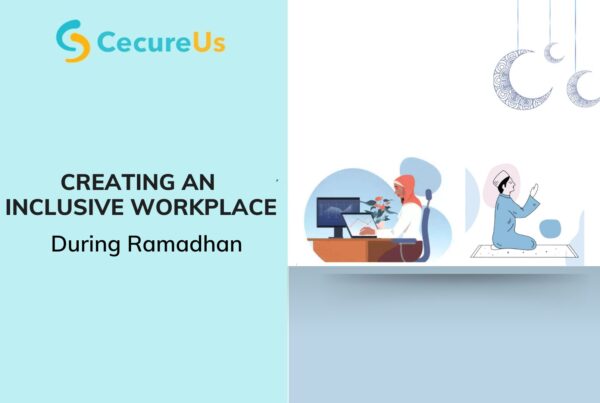Content Warning
This podcast episode contains discussions about suicide and suicidal thoughts, which may be distressing to some listeners. If you or anyone you know is experiencing suicidal thoughts or facing mental health challenges, please reach out to us at 1800 121 9497 or visit eap.cecureus.com for immediate support. Help is just a call away.

The podcast episode hosted by Viji Hari, author of Break the Taboo, focuses on a critical subject in honor of Suicide Prevention Month: the often-stigmatized topic of suicide prevention. Viji opens the discussion by sharing two deeply personal stories of loss emphasizing the wide spectrum of people impacted by suicide, regardless of their age, background, or circumstances. The conversation emphasizes the urgent need to address suicide, as India sees one death every three minutes, making it the second leading cause of death among those aged 15 to 30.
Joining Viji in the episode is Veena Jain, a psychologist with extensive experience in suicide prevention. Veena shares her own story about how a personal encounter with suicide in her life led her to transition from a successful career in HR to becoming a psychologist. Her journey has revealed that no singular cause leads to suicide, and with an increasingly complex world, emotional vulnerability has become more prevalent.
What Drives Someone to Consider Suicide?
As the conversation began with the most important question of whether suicide is typically an impulsive or planned decision, Veena explains that it can be both. Adolescents often feel immense academic pressure, peer influence, and emotional stress, while the elderly may struggle with depression, loneliness, and physical ailments. Across all age groups, feelings of helplessness, financial stress, and mental health issues can lead to suicidal ideation.
Viji notes that feelings of isolation and helplessness often drive people to consider suicide. She highlights the importance of having a non-judgmental society that allows individuals to express themselves without fear of stigma. Veena highlights that society often adds to the stigma surrounding mental health, making it harder for individuals to express their emotions or seek help. Creating safe spaces where people can be vulnerable and openly express their feelings is essential in suicide prevention.
Recognizing Suicide Warning Signs
Veena emphasizes that observing changes in behaviour is crucial for identifying warning signs of suicidal ideation. Here are key indicators to watch for:
- Behavioural Changes and Social Withdrawal: Significant withdrawal from activities, social isolation, or unusual lethargy can indicate distress. Look for changes in social engagement and overall energy levels.
- Expressions of Hopelessness and Talk of Suicide: Increased discussions about suicide or feelings of worthlessness and guilt should be taken seriously. Phrases like “I thought of harming myself today” reveal deeper issues.
- Planning for Death and Indirect Cries for Help: Preparations such as writing a will or giving away possessions, especially among young individuals without health concerns, are critical warning signs. Additionally, subtle hints about feeling like a burden should not be ignored.
- Changes in Eating and Sleeping Patterns: Noticeable shifts in appetite or sleep, including insomnia or excessive sleeping, can be linked to suicidal thoughts.
- Emotional Instability and Risk-Taking Behaviours: Extreme mood swings, such as sudden calmness after deep sadness or intense anger, along with reckless behaviours like substance abuse or dangerous driving, may signal self-destructive tendencies.
Veena stresses the importance of not dismissing these signs. Offering a compassionate ear, support, and a safe space for open conversations can significantly help in preventing suicide.
Myths and Facts: Suicidal thoughts and Behaviour
Many misconceptions and myths surrounding suicide can hinder individuals from seeking support. This conversation clarifies some of these misconceptions to help create a more supportive environment.
Myth #1: Talking about suicide will give someone the idea to do it.
- Veena dispels this, openly discussing suicidal thoughts with someone can help them feel supported and reduce the chances of an attempt.
Myth #2: People who talk about suicide are only seeking attention.
- People who talk about suicide may be reaching out for help. Always vital to take suicidal talk seriously.
Myth #3: Once someone decides to die by suicide, nothing can stop them.
- Veena strongly disagrees, citing cases where simple human connection made a difference. Interventions, treatment, and support can save lives. Suicidal feelings can be temporary.
Myth #4: Suicide happens without warning.
- While some suicides are impulsive, most people give warning signs, such as talking about death or exhibiting unusual behaviours.
Myth #5: People who survive a suicide attempt won’t try again.
- Veena notes that a supportive environment can reduce the risk, but a lack of support can lead to future attempts.
Myth #6: Myth: Only people with mental health disorders are suicidal.
- While mental illness increases the risk, not everyone who experiences suicidal thoughts has a diagnosed mental disorder. Life events, trauma, and overwhelming stress can also lead to suicidal ideation.
Myth #7: Statements made in anger, like “Go to hell,” can instigate suicide.
- Veena explains that vulnerable individuals may internalize such statements, leading to impulsive actions.
How to Support Someone with Suicidal Thoughts
Veena advises that when someone expresses suicidal thoughts, it’s crucial to remain calm, validate their feelings, and offer support. Simple gestures like holding someone’s hand or sitting in silence can make a big difference. Assurance through statements like “I am here for you” can go a long way in helping them feel heard and supported.
Conclusion
The episode wraps up with a rapid-fire round,
- Book Recommendation: Veena recommends starting with Louis Hay’s *You Can Heal Your Life* as a valuable resource on mental health.
- Self-Care Practice: Veena uses the Progressive Muscle Relaxation Technique to destress and calm her mind and body after sessions.
- Advice for Suicidal Thoughts: Veena emphasizes the importance of reassurance by saying, “I am there for you.”
- First Response to Someone Suicidal: Veena suggests saying, “You can talk to me” as an opening for conversation.
- Affirmation for Listeners: Veena encourages everyone with the mantra, “Believe in yourselves.”
In this heartfelt episode, Viji and Veena stress the importance of breaking the silence around suicide, creating empathetic communities, and fostering environments where individuals feel safe to share their struggles. Through their insights, they hope to contribute to suicide prevention efforts and encourage others to engage in open, supportive conversations about mental health.
If you or anyone you know is experiencing suicidal thoughts or facing mental health challenges, please reach out to us at 1800 121 9497 or visit eap.cecureus.com for immediate support. Help is just a call away.




